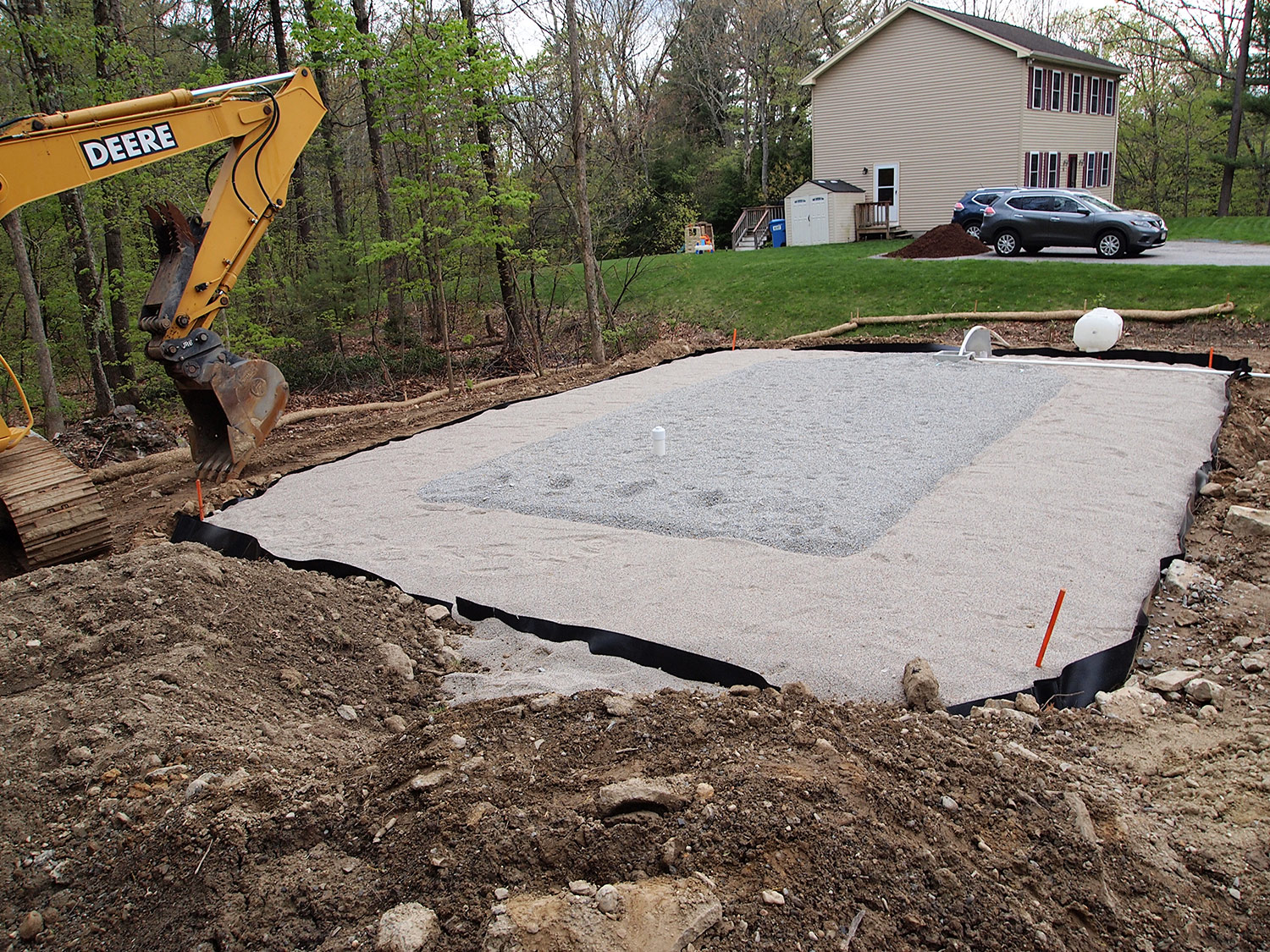
You have a septic system but that doesn’t mean you are an expert on it. But septic experts want you to know a few things; and mostly for your own sake. A little knowledge can go a long way toward preventing massively expensive (and massively gross) issues down the line.
1. Know how your system works
What you have in your backyard is your very own water disposal plant. When you live in the city, waste] goes away and you don’t think about it. It goes to a municipal plant and all kinds of great things happen to it. With a septic system, all that happens in your backyard.
To give you the basics, everything that goes into your tank naturally separates into three layers.
Anything heavier than water goes to the bottom, anything lighter goes to the top, and there’s a nice, clear liquid in between.
Over time, the sludge at the bottom gets thicker and thicker.
And that’s why you need a good inspection—and pumping—every now and then. It’s like changing the oil in your car. You just have to do it.
2. You can't put anything you want down your toilet—or garbage disposal
Correction: You can, but it’s not a wise idea.
Everything that goes down your toilets, as well as your shower and sink drains, makes its way into your septic tank. If it can’t physically travel through the pipes, you’ll have a major clog on your hands.
The list of what not to flush encompasses more than you might think. For instance, you should not flush thick paper down the drain at any time. That includes feminine hygiene products and baby wipes. Doing so can cause costly repairs.
Heavy use of your kitchen garbage disposal is also a no-no. Food waste, coffee grounds, and greasy or fatty foods will have a tough time breaking down in your septic tank. And the bacteria that grow as a result of these items stewing in your septic tank can prevent your system from working the way it should. (Hint: Toss food waste into a compost pail instead.)
3. Know the location of your septic tank so you don't crush it
The septic tank and field lines are typically installed in areas near the home, and it’s very important that every homeowner knows where they are. That way, you can prevent driving over it with vehicles or equipment, which can crush them and prevent them from operating properly.
You’ll also want to avoid planting trees or bushes over or near the area. Effluent—the wastewater that leaves your septic tank to be slowly dispersed underground—contains rich organic matter.
The roots will seek out those nutrients. And in doing so, those roots could easily wrap around the pipes of your septic system, setting the stage for disaster.
4. Using less water will help your system work better
Your septic system is responsible for distributing and disposing all of the water that flows through your household. To put that in perspective the average person will use up to 70 gallons per day.
If you can reduce that number, you’ll reduce the amount of wastewater your system has to deal with.
To do that, consider replacing your standard-issue toilets with high-efficiency ones. That's because regular toilets use up to 20% to 30% of the water your household consumes. High-efficiency toilets can cut that water usage in half.
You’ll also make a difference by waiting to run your washing machine or dishwasher until they’re full, and switching to low-flow shower heads and faucets.
Reducing the flow even a little will save you thousands down the road in expensive septic repairs or replacements.
5. Ignoring your septic system can wreak havoc on the environment
If you neglect to take care of your septic system, it’s not just your pipes (or your family) who’ll suffer. Failing septic systems can pollute nearby bodies of water and contaminate local drinking water. In fact, the second most-cited contamination source of groundwater is septic systems.
To make sure your system isn’t one of them, perform preventive maintenance regularly—and frequently. The average household septic system should be inspected at least every three years and typically needs to be pumped every three to five years.
For more information, contact Morse Engineering and Construction.
Source: realtor.com
